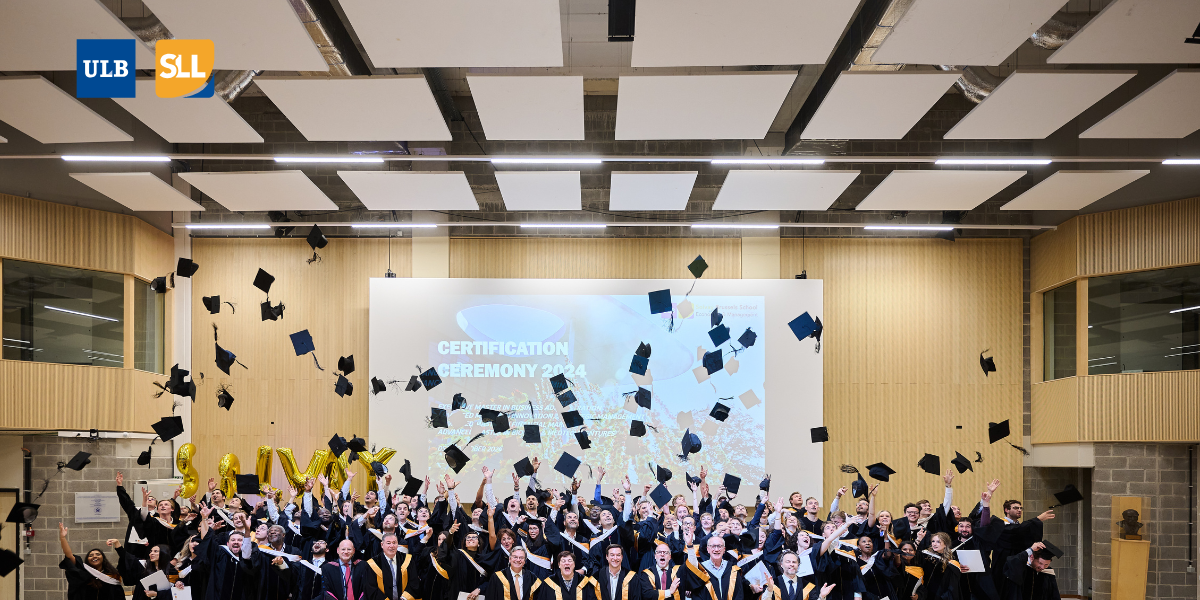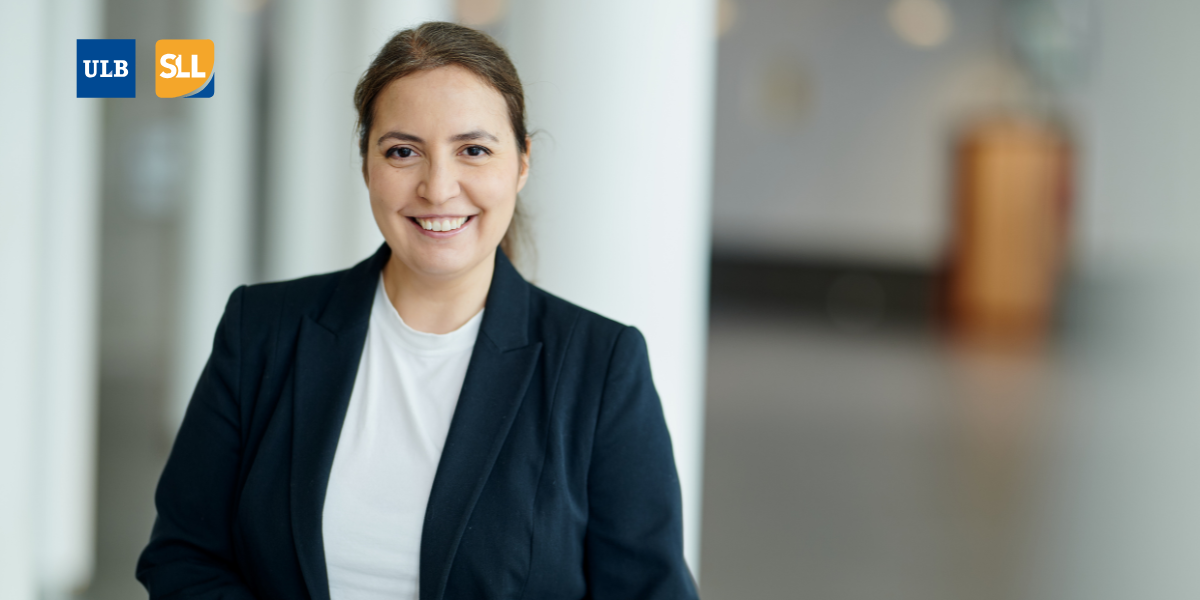Learn more about us.
Solvay Executive MBA: Celebrating 30 Years of Excellence
30 years ago, Solvay Brussels School launched its MBA programme – the precursor to today’s Executive MBA (EMBA). To learn how the programme has evolved over the past three decades, we sit down with Dean and Academic Director Bruno van Pottelsberghe. This is a big year for the Executive MBA...
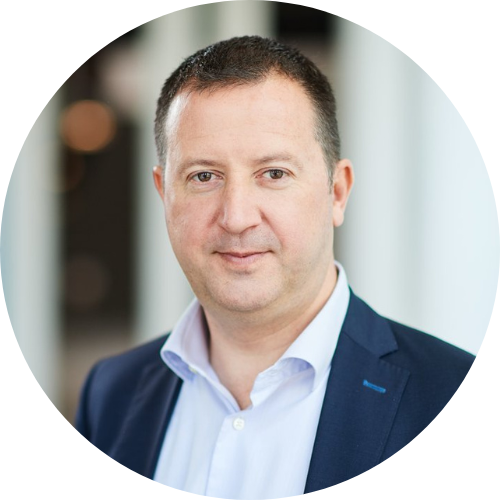
Bruno Van Pottelsberghe |Author
Dean of Solvay Brussels School and the Academic Director of the Executive MBA and Accelerated Management Programmes.
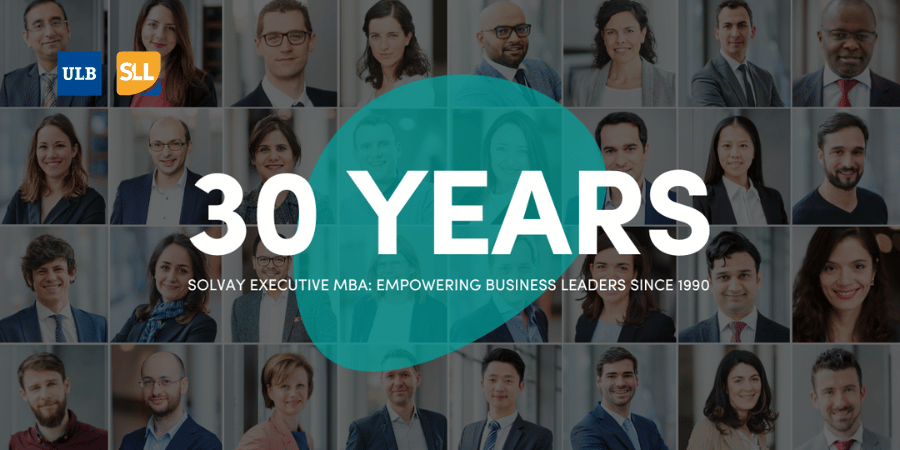
Stay connected
Never miss the latest insights, blogs and news. Subscribe to our newsletter.
30 years ago, Solvay Brussels School launched its MBA programme – the precursor to today’s Executive MBA (EMBA). To learn how the programme has evolved over the past three decades, we sit down with Dean and Academic Director Bruno van Pottelsberghe.
This is a big year for the Executive MBA programme. How does Solvay Brussels School plan to celebrate?
Well, normally we would have celebrated our 30th anniversary in October 2020 with the arrival of the 30th class. However, as these are anything but normal times, we had to adjust. Instead, we are marking our Executive MBA’s 30th graduating class, which will happen this fall, in early October.
To celebrate, we are planning a big graduation ceremony. Not only will we recognise the graduating class of 2021, we’ll also graduate the class of 2020. As this is our 30th anniversary, we will be inviting all our alumni to join us for a weekend full of keynotes speeches, interactive workshops, prestigious panel discussions, and lots of opportunities for networking. It should be a very exciting and fun opportunity to both look at how our programme has evolved and where it is going.
Speaking of evolution, how did the programme begin?
Today’s Executive MBA is rooted in a traditional, full-time MBA programme that was launched by professors Marie-Christine Adam and André Farber in September 1990. Back then, the full-time MBA in Europe was still an important component to the higher education offering. It was particularly popular with those who wanted to take a career break to acquire new managerial skills.
By the time I came onboard as Academic Director in 2002, the business landscape had changed considerably. For example, MBA candidates increasingly preferred a programme that allowed them to continue working while studying. To adapt to this trend, we decided to create a part-time MBA option, which was launched in 2003. The programme was designed so participants could network, acquire key managerial skills, and obtain a new degree – all while keeping their job. Although this was a very intense programme, running during the week, on weekends, and in the evening, it worked out well and proved to be popular, especially in the Brussels area which is surrounded by corporate headquarters and European institutions.
In 2017, we decided to transform the part time MBA into today’s Executive MBA. While our part-time programme focused primarily on traditional management skills, our Executive MBA uses a unique progressive learning structure that ensures a deeper level of understanding and a transformational experience.
Our programme uses a three-level approach to completing a transformational journey – a journey that is anchored by such key values as entrepreneurship, sustainability, and innovation. Starting with management essentials and building to leadership essentials and leading innovation, as participants progress through the course, they evolve into the change they want to be. In the final stage of this transformation, participants must put theory into practice and use their skills and knowledge to overcome real-world challenges.
Our Executive MBA also introduced the Solvay Labs, which continue to be one of our programme’s most popular features. This is a chance for our participants to get practical experience and, using the skills they developed in their core classes, experiment with innovation, sustainability, and strategy.
Has the makeup of EMBA candidates also evolved over the decades?
Definitely. Today, our enrollment is more diverse than ever. And this is saying something, as Solvay Brussels School has a proud history of diversity in the classroom. In fact, we were once featured in the Wall Street Journal for being the MBA with the highest percentage of women enrolled.
Building on this foundation, today’s classroom is diverse in every sense of the word. Participants come from all over the world. They also come from a variety of backgrounds – some being entrepreneurs, some middle management, and some executive leaders. Over the past years the average age of our participants has increased, with most having between 7 and 10 years of professional experience.
Can the same be said of your faculty?
Absolutely, the makeup of our faculty tends to mirror the diversity of our participants. Our international faculty not only come from some of the world’s leading business schools and universities, they also come from some of the world’s leading companies – with many having held executive-level positions, board memberships, and consulting roles. This unique combination of academic excellence with real-world experience brings a unique perspective into the classroom.
Where do you see the Executive MBA going in the next decade?
The future is digital and social entrepreneurship and, as always, we will continue to provide tomorrow’s leaders with the skills they need to lead the change. While continuing to provide such important skills as critical thinking and analysis, we will increase our focus on sustainability and innovation leadership.
Furthermore, while we will continue to offer our flagship courses on strategy, global entrepreneurship, digital strategy, and e-commerce, we’re also adding new courses. For example, we recently launched a course on Technology Regulation and Lobbying, which is taught by Shéhérazade Semsar-de Boisséson, an entrepreneur, investor, and current CEO of Politico Europe.
There’s a saying that "the more things change, the more they stay the same". Right now, a lot is changing, not only as a result of Covid-19, but also due to rapid digitalisation. While the Executive MBA has a track record of changing with the times, what aspects of the programme will always remain the same?
Right now, our courses are 100% online, but, as soon as it is safe to do so, we intend to start reintroducing in-person courses, mixed with some online training – the so-called blended learning strategy. That’s because our participants have – and always will – come to Solvay Brussels School not only to learn, but to network with other professionals. After all, at the end of the day, digital interaction by itself does not fulfil our deepest need to socialise and communicate. The social, networking, and brainstorming opportunities that are such a big part of our Executive MBA programme just cannot be replicated online.
But regardless of whether we’re online, in person, or a little of both, one thing that will never change is the transformational journey that all our students go through. Even after all these years, I continue to be amazed by how much our participants develop over the course of the programme. Every year we see our Executive MBA candidates leave more skilled and more confident. You can actually feel the dynamism and the ambition to go out and be the change they want to be.
Stay connected
Never miss the latest insights, blogs and news. Subscribe to our newsletter.

Newsletter subscription
Never miss the latest insights, blogs and news
Subscribe to our newsletter and never miss the latest insights, events and blogs.
What other people like
Related blogs
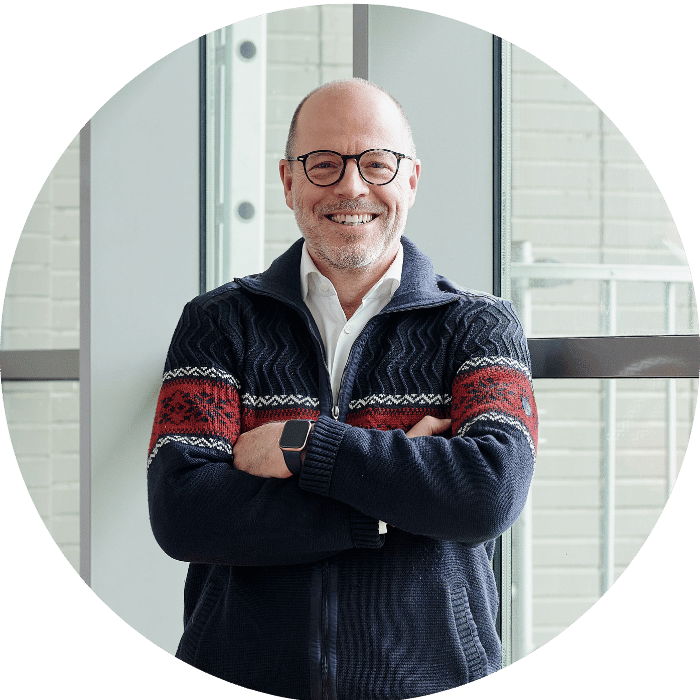
Bruno is Senior Advisor and Ambassador for Innovation at EY and the Academic Director of the Solvay EMBA and Accelerated Management Programme. He is an expert in strategy, Entrepreneurship and Innovation.
9/04/25

Marianna is the Content & Social Media Coordinator at Solvay Brussels School - Lifelong Learning.
8/04/25

Marianna is the Content & Social Media Coordinator at Solvay Brussels School - Lifelong Learning.
8/04/25
